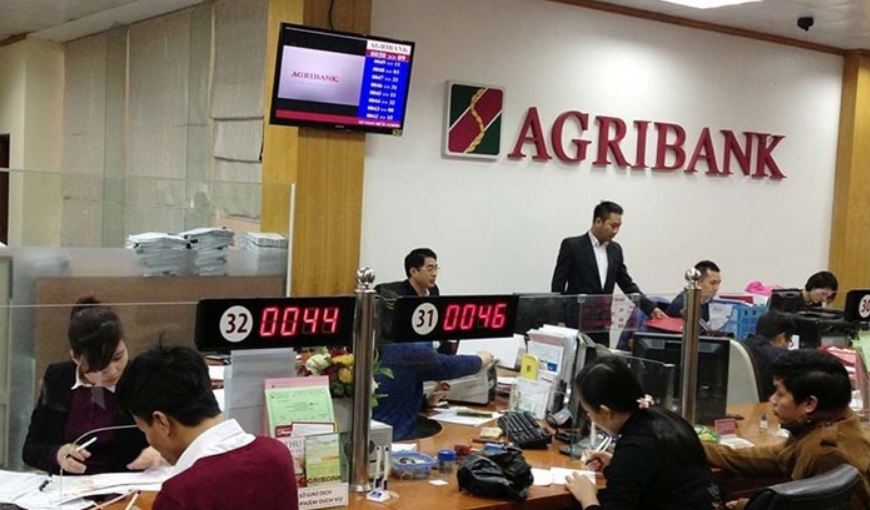In the last week of December Agribank became the 10th bank to complete the purchase of all bad debts it had previously sold to the Viet Nam Asset Management Company (VAMC).

In the last week of December Agribank became the 10th bank to complete the purchase of all bad debts it had previously sold to the Viet Nam Asset Management Company (VAMC).
VPBank reported earlier it had bought back its bad debts and made provisions for 45 per cent of them.
The eight others are Vietcombank, VIB, Techcombank, TPBank, MB, OCB, Nam A Bank, and Kien Long Bank.
Analysts said the purchase of the bad debts from the VAMC involved considerable use of the lenders profits.
TPBank, for instance, paid VND756.5 billion (US$33.3 million) to buy the debts and then had to make provisions worth VND400 billion for them.
Several of them auctioned mortgaged assets, mainly real estate, for trillions of dong.
The Sai Gon-Ha Noi Commercial Joint Stock Bank (SHB) also said it would repossess 15 assets, mainly real estate, pledged as collateral. In 2019 it announced it would repossess nearly 60 assets.
In October 2013 the VAMC agreed to buy bad debts from banks to reduce the bad debts ratio in the banking system. Many had to sell their bad debts to take them off their balance sheet to reduce the ratio to below 3 per cent as required by the central bank to continue operating as normal banks.
Instead of money, the banks received five-year special bonds from the VAMC, and over the next five years, the banks had to make 20 per cent provision a year to redeem the bonds.
SeABank has just completed early redemption of its bonds worth VND3.539 trillion ($152.9 million).
While their profits took a hit as a result, it enabled the banks to restructure their business, significantly recovering their financial health.
Experts have come up with many reasons for why the lenders have been proactive about the resolution of their bad debts.
One obvious reason is that time is running out: The VAMC was to keep the bad debts for only five years, and the deadline for many banks was late 2019 or early 2020.
If a lender misses the deadline it faces penalties from the State Bank of Viet Nam, including suspension of the right to pay shareholders dividends in cash.
The dividends will instead be used for settling the bad debts.
Experts said, however, the most important benefit of buying back the bad debts from the VAMC is that banks would be more proactive in monitoring and handling their bad debts while increasing transparency on its financial statements to create momentum for profit growth in the following years.
The excellent business results achieved by lenders who have bought back all their bad debts seem to prove them right.
In 2016 Vietcombank announced it had bought back all its bad debts. That year its profit was VND8.2 trillion.
One year later the figure rose to VND11 trillion, and last year it was estimated to be nearly VND22 trillion.
VIB reported its profit was up 150 per cent a year after buying back its bad debts.
With banks working harder to recover bad debts, the industrys overall bad debt ratio would soon go below the 3 per cent target the central bank has set, experts said.
Brokerage accounts slowdown
The number of new stock trading accounts opened with brokerages last year is said to be the lowest in three years.
Experts attributed the slowdown to the markets declining returns.
According to preliminary statistics from the State Securities Commission, as of October, the number of accounts was more than 2.3 million, up 7.4 per cent from the end of 2018.
The Viet Nam Securities Center said the number of individual investors opening new accounts in 2019 was 187.82 million, the lowest level since 2016.
Analysts believed a majority of the new accounts were opened by existing investors seeking more opportunities and opening accounts at more brokerages.
The scale of transactions in the market was sharply down, with the average value per session estimated at VND4.639 trillion, down 29 per cent from 2018.
Two-thirds of listed stocks, including blue chips, saw their prices decrease over the course of the year.
By last October domestic securities investors had total 2,311,348 accounts, including 2,301,388 individual accounts and 9,960 institutional accounts.
The analysts said the number of securities accounts was still very modest for a population of nearly 100 million.
To attract new investors and retain old ones, many securities companies do not collect account fees.
This has made it easier for investors to move to other securities companies without closing existing accounts.
Some securities companies are known to advise clients to keep their accounts even when they no longer want to trade.
Thus, a big securities company might have hundreds of accounts but mostly on paper, with only 10-20 per cent seeing transactions.
Another reason for the slowdown was the trade war between the US and China that scared away many investors to safer asset classes.
Many foreign and local investors pulled their money from stocks and invested it in gold and property.
Foreign investors sold securities worth VND556 billion in 2019 and account opening by them fell by 33 per cent. — VNS





